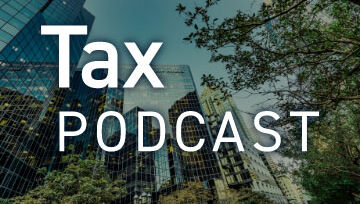The April issue of the Regulatory Compliance Digest features a summary of the latest updates from the CFPB, HUD’s Discriminatory Effects Standard, HMDA Data on Mortgage Lending and HUD’s transitioning away from LIBOR to alternate indices. The Digest summarizes the latest compliance updates that may impact your institution.
The Regulatory Compliance Digest is intended to keep you informed of regulatory changes in advance of their effective date so your institution can evaluate changes or updates to necessary policies, procedures and processes in place to be compliant at the time of enactment.
Industry Trends & Insights
Protecting Homeowners From Discriminatory Home Appraisals
Homeownership is one of the best paths to building intergenerational wealth, especially within communities historically shut out from fair access to the housing market. For families of all races and income levels to prosper and successfully pursue the American dream of homeownership, home appraisals must be accurate and free of bias.
The Consumer Financial Protection Bureau (CFPB) administers and enforces federal consumer financial protection laws like the Equal Credit Opportunity Act (ECOA), which is a landmark civil rights law that protects individuals against discrimination in accessing and using credit. These protections apply to every aspect of a credit transaction with a mortgage lender, including the important step of mortgage lenders relying on home appraisals before approving a loan.
The Department of Justice (DOJ) enforces both ECOA and the Fair Housing Act (FHA), which protects individuals from many forms of discrimination in housing, including discriminatory residential valuations conducted by appraisers and the use of those appraisals by mortgage lenders.
To help ensure appraisals used to make lending decisions are objective and non-discriminatory, the CFPB and DOJ filed a Statement of Interest in the U.S. District Court for the District of Maryland.
CFPB Uncovers Illegal Junk Fees on Bank Accounts, Mortgages, and Student and Auto Loans
The Consumer Financial Protection Bureau (CFPB) released a special edition of its Supervisory Highlights that reports on unlawful junk fees uncovered in deposit accounts and in multiple loan servicing markets, including in mortgage, student and payday lending. These unlawful fees corrode family finances, force up families’ banking and borrowing costs, and are not easily avoided – even by financially savvy consumers. As described in the Supervisory Highlights, the CFPB continues rooting unlawful fees out of consumer financial markets. Highlighted fees include the following:
Deposit Accounts
- Surprise Overdraft Fees
- Multiple Non-Sufficient Funds (NSF) Fees
Auto Loan Servicing
- Out-of-Bounds and Fake Late Fees
- Inflated Estimated Repossession Fees
- Pay-to-Pay Payment Fees and Kickback Payments
Mortgage Loan Servicing
- Excessive Late Fee Amounts
- Fees for Unnecessary Property Inspections
- Fake Private Mortgage Insurance (PMI) Premium Charges
- Failure To Waive Fees for Homeowners Entering Some Loss Mitigation Options
Payday and Title Lending
- Vehicle Repossession and Property Retrieval Fees
- Vehicles Being Repossessed With Fees Tacked On Despite Prior Payment Arrangements
Student Loan Servicing
In the student loan servicing market, CFPB examiners found that servicers sometimes charged late fees and interest after payments were made on time. Specifically, the servicers’ policies did not allow borrowers to pay by credit card; however, sometimes their customer representatives erroneously accepted credit card payments. The servicers then cancelled the payments and did not offer borrowers the chance to pay again. Instead, the servicers acted as if no payment had been made and charged the borrowers late fees and additional interest.
Agency Contact Information Updated
The Consumer Financial Protection Bureau (Bureau or CFPB) is issuing this final rule to make non-substantive corrections and updates to Bureau and other Federal agency contact information found at certain locations in Regulations B, E, F, J, V, X, Z and DD, including Federal agency contact information that must be provided with Equal Credit Opportunity Act adverse action notices and the Fair Credit Reporting Act Summary of Consumer Rights. This final rule also revises the chapter heading, makes various non-substantive changes to Regulations B and V, and provides a Bureau website address where the public may access certain APR tables referenced in Regulation Z.
The rule is effective April 19, 2023. However, the mandatory compliance date for the amendments to appendix A to Regulation B, appendix A to Regulation J and appendix K to Regulation V is March 20, 2024. See part V for more information.
Reinstatement of HUD’s Discriminatory Effects Standard
Title VIII of the Civil Rights Act of 1968, as amended (Fair Housing Act or Act), prohibits discrimination in the sale, rental or financing of dwellings and in other housing-related activities on the basis of race, color, religion, sex (including sexual orientation and gender identity), disability, familial status or national origin. This prohibition extends to practices with an unjustified discriminatory effect, regardless of whether there was an intent to discriminate. In 2013, HUD published a rule which formalized HUD’s long-held recognition of discriminatory effects liability under the Act and formalized a burden-shifting test for determining whether a given practice has an unjustified discriminatory effect titled, “Implementation of the Fair Housing Act’s Discriminatory Effects Standard” (2013 Rule).
In 2020, HUD published a rule titled “HUD’s Implementation of the Fair Housing Act’s Disparate Impact Standard” (2020 Rule) that would have altered the standards set forth in the 2013 Rule. Prior to the effective date of the 2020 rule, the U.S. District Court for the District of Massachusetts issued a preliminary injunction in Massachusetts Fair Housing Center v. HUD, staying HUD’s implementation and enforcement of the rule. Consequently, the 2020 Rule never took effect, and the 2013 Rule remains in effect. On June 25, 2021, after reconsidering the 2020 Rule, HUD published a proposed rule titled, “Reinstatement of HUD’s Discriminatory Effects Standard,” (proposed rule), proposing to recodify the 2013 Rule. After considering the public comments HUD received, HUD in this final rule reinstates and maintains the 2013 Rule. The rule goes into effect 30 days after the date of publication in the Federal Register.
2022 HMDA Data on Mortgage Lending Now Available
The Home Mortgage Disclosure Act (HMDA) Modified Loan Application Register (LAR) data for 2022 are now available on the Federal Financial Institutions Examination Council’s (FFIEC) HMDA Platform for 4,394 HMDA filers. The published data contain loan-level information filed by financial institutions and modified to protect consumer privacy.
Adjustable-Rate Mortgages: Transitioning From LIBOR To Alternate Indices
HUD is removing the London Interbank Offered Rate (LIBOR) as an approved index for adjustable interest rate mortgages (ARMs) and replacing it with the Secured Overnight Financing Rate (SOFR) as a secretary-approved index for newly originated forward ARMs. HUD is also codifying its removal of LIBOR and approval of SOFR as an index for newly originated Home Equity Conversion Mortgage (HECM or reverse mortgage) ARMs. In addition, HUD is establishing a spread-adjusted SOFR index as the Secretary-approved replacement index to transition existing forward and HECM ARMs off LIBOR. HUD is also making clarifying changes to its HECM Monthly ARM regulation and establishing a lifetime adjustment cap for monthly adjustable rate HECMs. This final rule adopts HUD’s October 19, 2022, proposed rule with minor changes.
Bulletin 2023-01: Unfair Billing and Collection Practices After Bankruptcy Discharges of Certain Student Loan Debts
The Consumer Financial Protection Bureau (CFPB) is issuing this Compliance Bulletin and Policy Guidance (Bulletin) to address the treatment of certain private student loans (hereinafter referred to as student loans) following bankruptcy discharge. In order to secure a discharge of “qualified education loans” in bankruptcy, borrowers must demonstrate that the loans would impose an undue hardship if not discharged. Student loans that are not “qualified education loans” (hereinafter referred to as “non-qualified student loans”), however, are discharged under standard bankruptcy discharge orders. In recent supervisory work, CFPB examiners identified servicers that did not determine whether education loans were qualified or non-qualified.
As a result, servicers improperly returned non-qualified education loans to repayment after a bankruptcy concluded and continued to bill and collect payments on the loans, even though the borrowers’ bankruptcy discharges released them from these debts. This conduct violated the Consumer Financial Protection Act’s (CFPA’s) prohibition on unfair, deceptive or abusive acts or practices. CFPB examiners directed the servicers to cease collection of discharged loans and take remedial action, which includes conducting a multi-year lookback and issuing refunds to affected consumers. In its oversight, the CFPB will pay particular attention to servicers’ practices in connection with student loans that are the subject of bankruptcy discharge orders, including whether discharged debts are being collected contrary to bankruptcy court orders.
Have Questions?
If you would like to discuss any compliance matters for your institution, please contact your Cherry Bekaert Advisor or reach out to the Firm’s Risk Advisory regulatory compliance team today.
DISCLAIMER
External links to other websites outside of www.cbh.com are being provided as a convenience and for informational purposes only. The links do not constitute an endorsement or an approval by Cherry Bekaert of any of the information, products, services or opinions of the organization or individual. Cherry Bekaert bears no responsibility for the accuracy, legality or content of the external websites or for that of subsequent links. Contact the external website for answers to questions regarding its content.




